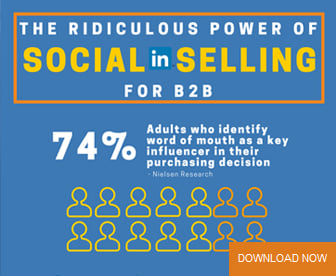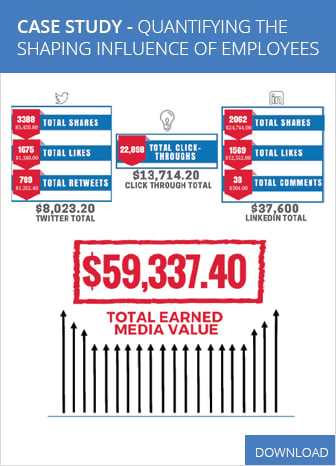Why Women Are the New Tech Unicorns
We all know there’s a shortage of women in tech. The reasons why have been widely debated, but seem to come down to these four factors: gender stereotypes, inadequate talent pool, in-group favoritism, and work culture issues. According to a recent survey by the Guardian, 73 percent of respondents believe the tech industry is sexist. As the CEO of a tech company — and the proud father of two daughters — I keep these factors in mind, and they motivate me to bring more women to our team.
Twenty-eight percent of both our staff, and our coders, are female. On the one hand, I’m proud of those numbers. While there are signs that the tide is turning, that number is a lowly 17 percent at Google, and only 15 percent at Facebook—and less than seven percent of tech positions in Europe are filled by women. On the other hand, I want that number, and the resulting value add we’ve experienced through our diversity efforts, to be higher. Ideally it would be 50 percent.
In building an ambitious team from scratch, I seek diversity, built on a foundation of shared values. Diversity takes many forms — including work style, gender, race, and experience — and brings benefits across the board. Diversity ensures a powerful marketplace of ideas, and a variety of tools to implement them.
Why we actively seek women, and why it’s not easy
Here’s the other reality: We need women to succeed; it’s in our business model. Almost 60 percent of Spare5’s active users are female, and women are the decision makers at a number of our business customers, and their consumers. I can’t define precisely why sometimes it’s easier for women to understand other women, other than to say, I know we’d be doomed if we were all males trying to do so. In addition, we have an open office and open culture. Diversity makes it more fun, and brings out the best in all of us.
Gender is only one color in the diversity spectrum, but as researchers at Google’s Project Aristotle recently learned, the single best determinant of high-performing teams is whether employees feel safe – that is, can they be themselves, be heard, and find colleagues with empathy. In my opinion and experience, all of the above requires a gender balance.
Simply having the goal of recruiting more women hasn’t solved the diversity problem. The talent pool gap is real. Organizations such as Code.org, Ada Developers Academy, the National Center for Women & Information Technology, to name a few, are working to close the gap, but it’s taking its sweet time.
In fact, by some measures, we are actually losing ground. And the issue isn’t limited to the Seattle area (Spare5’s headquarters). On a national level, fewer than 20 percent of the computer science bachelor’s degrees are conferred to women (versus over 35 percent in the early 1980s).
Through Spare5’s efforts to diversify the workplace, here are a few key takeaways we’ve learned:
Culture. Culture is everything. It plays an especially important role in employee job satisfaction and according to feedback, particularly for women. My female employees describe Spare5’s culture in particular as “safe,” “respectful,” and “approachable.” One shared with me, “My stress level goes down when I come into work, so I feel like I can do my best work here.” While another employee described a chaotic environment at her prior place of work, and how relieved she feels to be here, “Without all that noise so I can just work.”
Several of them also noted they’d never really explicitly thought about being a woman at Spare5, because they’ve never seen anything that resembles the “brogrammers,” or “men’s club.” We don’t have drinks only for the boys, tell sexist jokes, or, at the bottom line, treat anybody differently based on their gender.
Make the right hires. Several of our female employees observed that creating an environment that is friendly for women is largely about hiring the right people. In particular, we do not tolerate brash, narcissistic, or temperamental behavior. We praise and promote humility, action, and being opinionated and vocal, but amicable.
Fire the wrong hires. We have parted ways with people who don’t live our values. Some of my female colleagues volunteered that this made a huge statement. We all make bad hires. It sucks, but the old cliché holds true: “Hire slow, fire fast.” You define your team’s culture as much by who you are NOT, as much as by who you aspire to be.
Job descriptions. I’d never heard this before, but when I asked for advice about how to recruit more women, my female employees had a field day mocking various job descriptions they’ve read, and declined to apply for two main reasons: First, they use highly-masculine terms like “rock star” or “killer,” and second, they list requirements that they don’t meet. I’ve been guilty of both. For instance, I once posted a job description with a picture of lions. One of our round table members asserted, “I don’t want to be a rock star.” That person is a great programmer and team member. She just doesn’t imagine herself belting out hard rock ballads while submitting code.
Our female employees pointed out that many job descriptions have long lists of requirements, and they tend to take each one seriously. One of our extremely talented technical women confided that she almost didn’t apply for Spare5 because she did not meet one criterion. Early in her first interview, she asked our CTO how important that was, and was fully ready to opt out. Turns out, it was merely a throwaway “perk” more than a requirement. Several of our female employees agreed with this, and came to the conclusion that men, overall, must feel totally fine “winging it” in interviews, whereas women tend to be particularly sensitive about “over-reaching.”
Referrals. We all know that recruiting is largely about reputation and word of mouth. My female employees pointed out that this is particularly true when checking out whether a team is a good fit for them. We have been sponsoring Ada because it’s a good thing, and because we selfishly wanted a good intern. But it turns out that this was also a way of hanging a shingle that says, “We promote having women in tech, and in our company.”
Maybe others will read this, jump in, and have more ideas about the dos and don’ts. If I got something wrong, let me know.
Edited by Maurice Nagle











